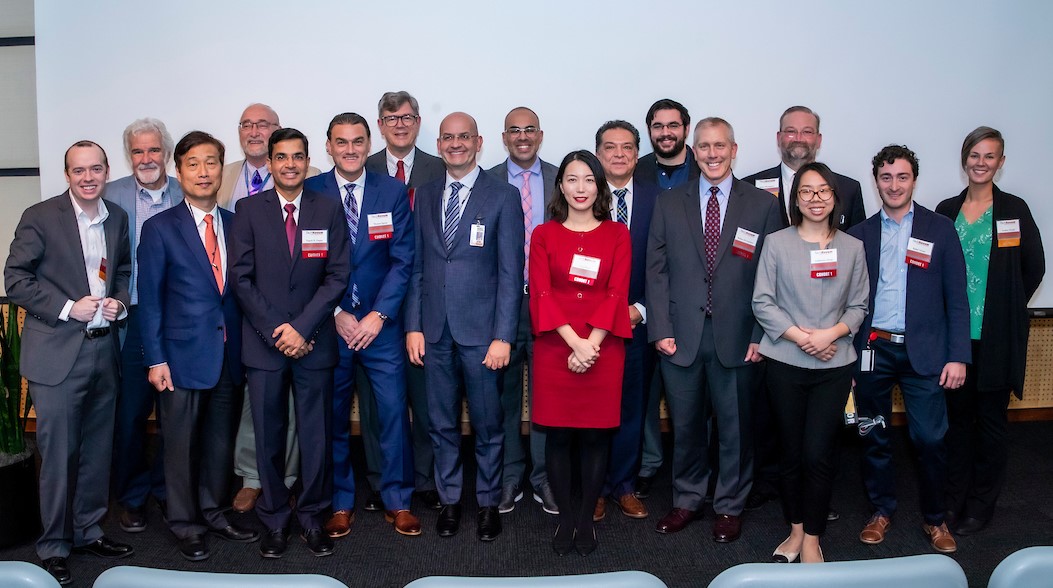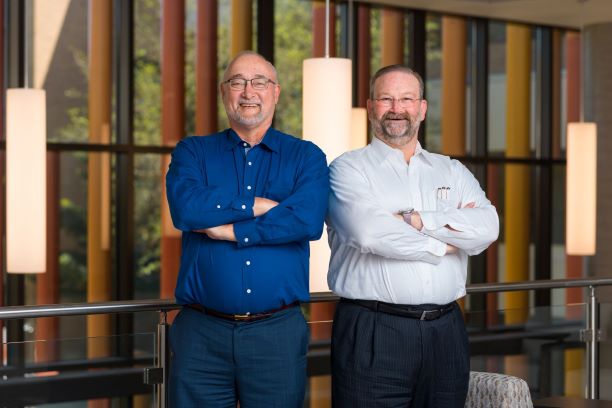TechNovum accelerator for researchers graduates 8 new companies
Contributor
April 27, 2020

A new accelerator program designed for aspiring life science entrepreneurs has helped in the formation of eight new biomedical startups.
Earlier this year, UT Health San Antonio launched TechNovum, a new technology commercialization accelerator for faculty researchers interested in developing their inventions for the market. John Fritz and Sean Thompson of the Office of Technology Commercialization at UT Health are co-directors and mentors for the new program.
The first cohort graduated two therapeutics companies, spurred the development of four new medical devices, and included two digital health startups.
The companies are:
- Atomic Therapeutics, developing novel anticancer therapeutics for leukemia
- Protectum Oncology, introducing low-dose arsenic for reducing cancer therapy side effects
- EmergenceMed, an emergency medical suction device for obstructed airways
- CereNovum, Inc., a brain blood clot treatment device
- Diabetic Innovaitons, Inc., a compression device to stabilize the foot and ankle after surgery
- Pulse Strip, an audible pulse detection device
- AI+ Health, an artificial intelligence or AI-driven solution to chronic disease management, and
- Dencision, a dental and healthcare student assessment software as a service (SaaS) platform.
“This accelerator is the centerpiece of our efforts to build an entrepreneurial culture within the Health Science Center,” said Dr. Andrea Giuffrida, vice president for research at UT Health San Antonio. “Experienced mentors can help explain commercialization pathways for our researchers, while our postdocs and graduate students benefit from working with each team on their market strategies.”
Founders must first complete a validated technology commercialization process established with the Office of Technology Commercialization before entering the program, said John Gebhard, the assistant vice president
for the commercialization office. Each cohort will run annually from June through October, with a maximum of eight teams of founder-inventors joining the program. The accelerator does not require participants to pay a fee or exchange an equity share. San Antonio Life Sciences Institute, a joint program of UT Health San Antonio and The University of Texas at San Antonio, is funding the new accelerator program.
Fritz and Thompson recruited over a dozen mentors with specialized experience to work with the teams and invited accredited investors to participate in the final demo day for the program which was held Tuesday evening.
“We had 15 investors come tonight, with many more getting scheduled to meet with the teams in the coming weeks,” said Fritz. “We even had a company representative from the world’s largest manufacturer of spark plugs attend because he is looking at medical sensors that could be used to innovate their products.”
"Our goal is to foster the formation of more early-stage companies working on taking an innovative research idea to the market."
–Andrea Giuffrida, Ph.D.

A longer-term goal for UT Health is to open the accelerator program to other entrepreneurs in the community interested in taking their bioscience advances to the market. The objective would be to create a broader entrepreneurial culture for life science researchers in San Antonio that includes founders, mentors, investors, and potential partners.
“These researchers underwent a process of discovery,” Thompson said. “They may be experts in their respective fields, but they were able to also learn about their specific industry space and what it takes to get their product to market.”
That discovery process was evident in the presentations from each of the eight teams. Every founder spoke of the need for a business-savvy chief executive and financial officer to round out their company.
The stages of readiness for the market ranged from the very early-stage Pulse Strip, which needs to develop a prototype of its pulse monitor, to the market-ready Dencision, a SaaS platform that already has revenue-paying customers for its dental and healthcare student assessment app.
A clinical assistant professor at UT Health’s dental school, founder Dr. Ahmed Sabbah launched Dencision in 2017 when he realized that recording student grades on paper took too long and didn’t provide enough details on progress. The app is already in use at the dental school, recording on average 5,900 grades monthly “much more accurately, faster, and easier than using the old paper system most schools use,” he told the audience. Sabbah is currently looking for a CEO and seed funding for his new SaaS startup and plans to launch the mobile app for electronic grading by summer 2020.
“We’re giving tools to our faculty to help them start a company based on an idea,” Guiffrida said. “Once formed, that company can move into one of the city’s incubator programs for further development.”
“Our goal is to foster the formation of more early-stage companies working on taking an innovative research idea to the market.”
